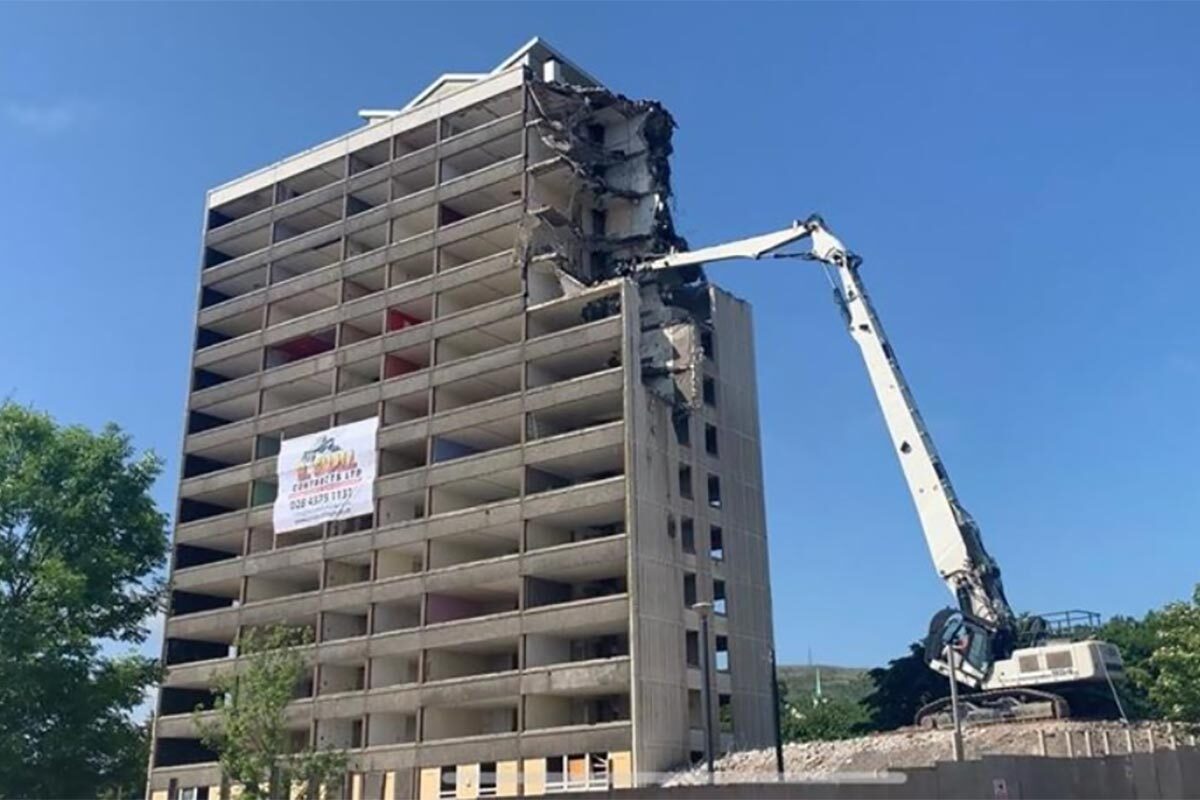You are viewing 1 of your 1 free articles
£7.4m budget cut would make it ‘virtually impossible’ to prevent homelessness, says NIHE
A £7.4m shortfall in funding for homelessness services in the proposed Northern Ireland Budget for 2023-24 will make it “virtually impossible to provide services to prevent homelessness”, the Northern Ireland Housing Executive (NIHE) has said.
In response to consultation by the Department for Communities (DfC) on the equality impact of its funding proposals, Grainia Long, the NIHE chief executive, warned that an “overwhelming” proportion of the homelessness budget will focus on response, rather than prevention, as a result of the cut.
“Perversely, failure to fund prevention services will lead to greater numbers living in expensive temporary accommodation, leading to greater budgetary pressures.
“We are extremely concerned that failure to fund homelessness services will lead to job losses in the voluntary and community sectors,” she said.
The secretary of state for Northern Ireland set the 2023-24 Budget in April.
The DfC set out an initial assessment of its impact in May, followed by an Equality Impact Assessment.
In response to the latter, the NIHE raised concerns that shortfalls in the Budget would put vulnerable people at risk.
It highlighted cuts to homelessness services, independence support grants, energy efficiency grants and the Social Housing Development Programme (SHDP).
The housing executive said it needed £33.8m to fund homelessness services, but indicative funding of only £26.4m had been allocated.
In its response, it said: “By solely funding temporary accommodation, and not funding wraparound services, thousands of people experiencing homelessness may be without any support or advice.
“In our professional opinion, this will leave many people exposed to repeat homelessness, as their temporary accommodation placements fail.
“The impact of this for other public services will be acute.”
For the SHDP, the housing executive said it required £199.5m to target 2,000 new social housing starts in 2023-24 to meet housing need.
Although £141.6m has been allocated on an indicative basis, the NIHE has been asked to plan on the basis of a £159m budget.
“Both scenarios would result in a budget shortfall and, even in a ‘higher case scenario’ of a £159m budget, will result in substantially fewer homes being built in 2023-24 than originally planned.
“This will have direct implications for levels of housing need,” the NIHE said.
It said the Energy Efficiency Grants programme had been allocated £2m less than what was required – £14m instead of £16m.
The NIHE also raised concerns about the indicative allocation of £72.9m for the Supporting People programme, which provides housing support services to approximately 19,500 people to enable them to live independently in the community.
It said the funding did not allow for unavoidable cost pressures experienced by provider organisations. “This budget therefore will remain under significant pressure,” it said.
Ms Long said: “At a time when we need to be building more homes, preventing homelessness and helping those experiencing fuel poverty, the proposed budget would result in substantially fewer social homes started than originally planned for next year, an increase in people needing temporary accommodation and the effective suspension of the boiler replacement scheme.
“The funding challenge outlined in the draft budget comes at a time when the cost of living crisis is continuing to affect many households across Northern Ireland.
“As housing professionals, we are concerned about the impact that the proposed budget cuts will have across society, but specifically on those individuals who need our help the most: people with disabilities; young people leaving care; the increasing number of young women presenting as homeless; households in rural areas; those in fuel poverty; and vulnerable groups, including older people.”
She said the £2m in the Affordable Warmth scheme would “curtail this improvement programme” and the indicative funding of £148,000 for the boiler replacement scheme “effectively closes [it] to new applicants this year”.
“In addition, the budget outlined in the [Equality Impact Assessment] does not allow for the high cost of goods and materials, and contingency planning for emergency situations, such as a COVID-19 outbreak or cold snaps during the winter,” Ms Long said.
She added: “We will, of course, work to minimise any disruption to services and programmes of work. However, it is our view that the proposed expenditure as it stands will have an adverse impact on the most vulnerable people across Northern Ireland, who are urgently in need of housing services.”
Sign up for our Northern Ireland bulletin
Already have an account? Click here to manage your newsletters












